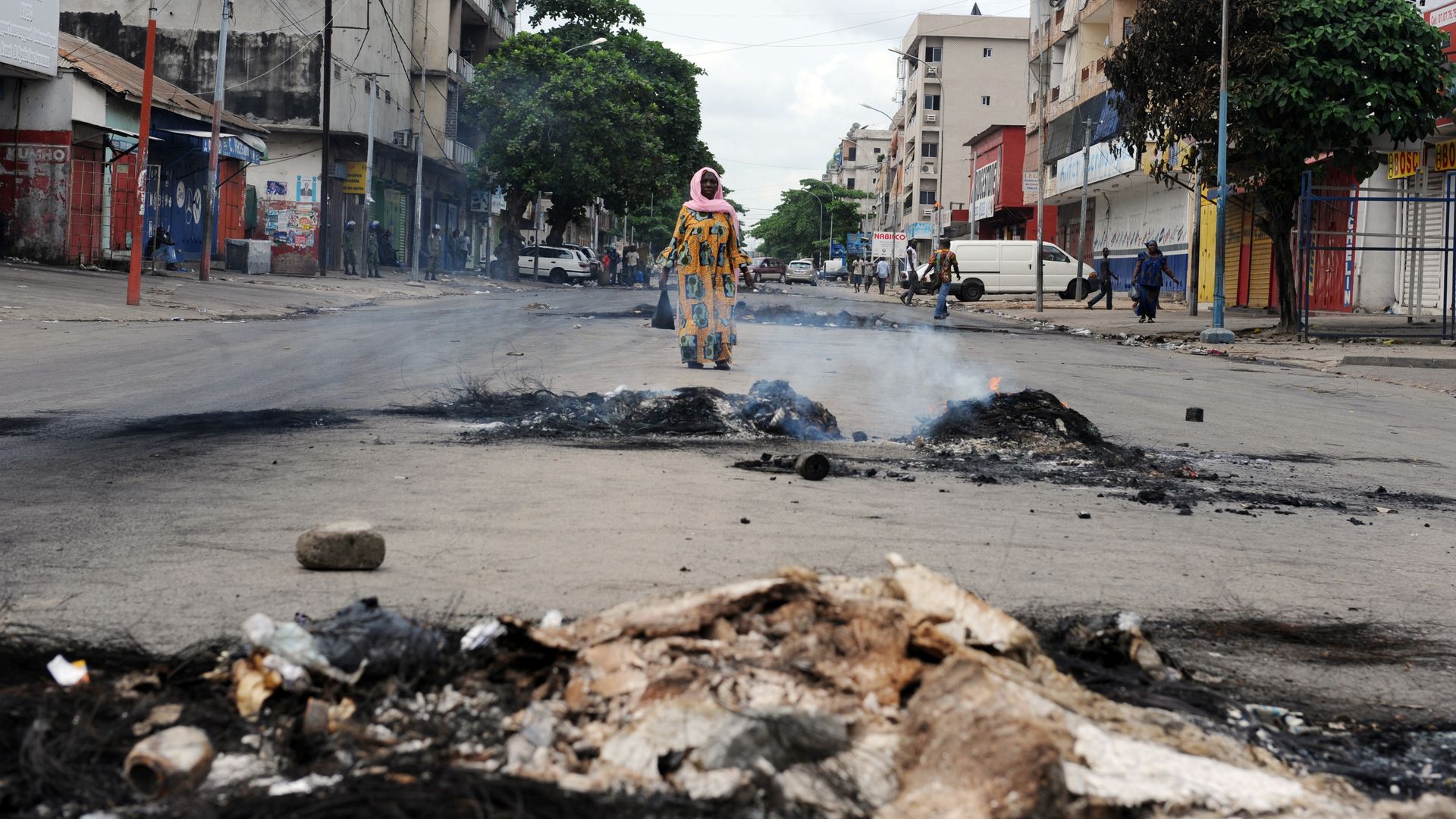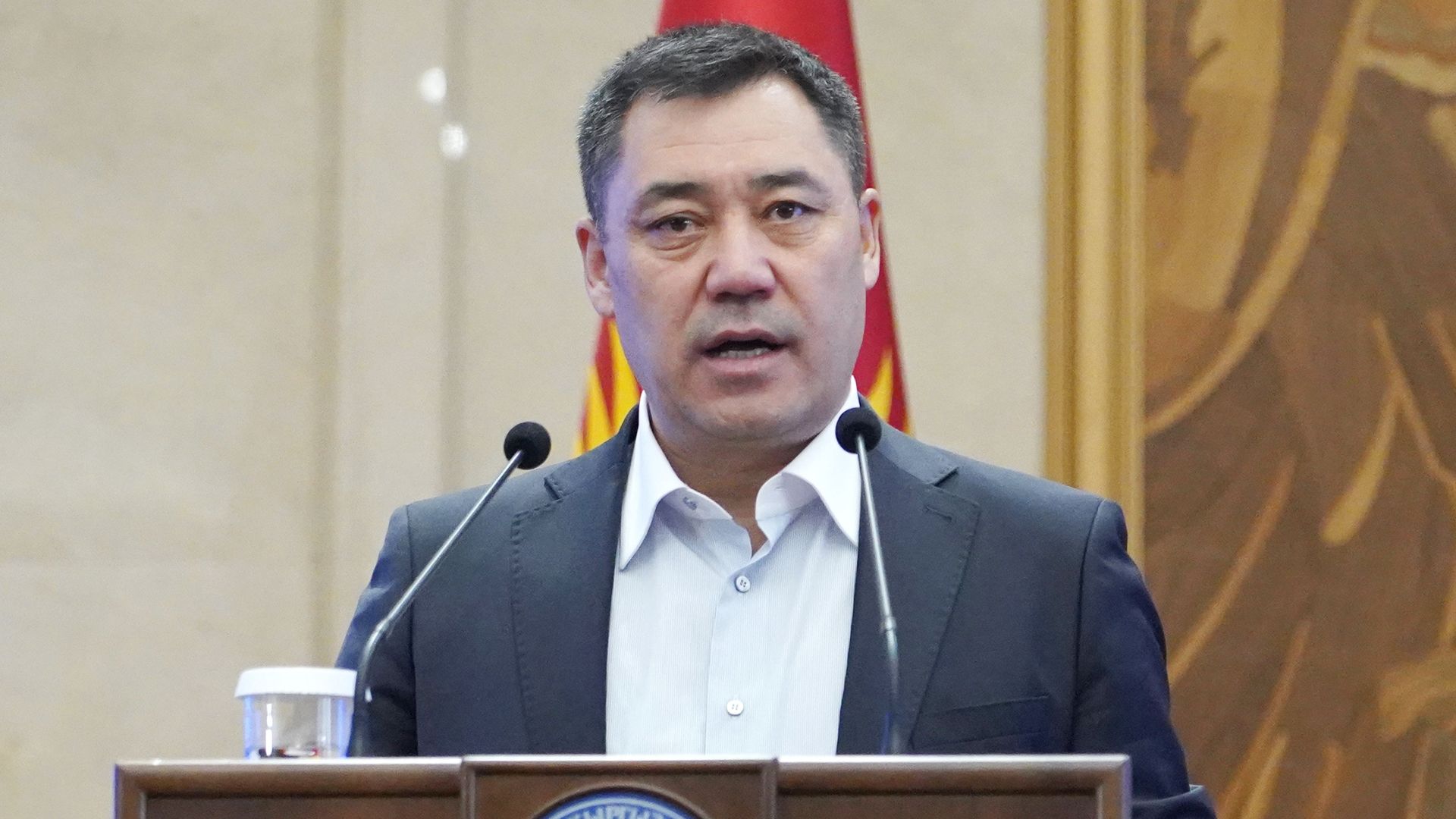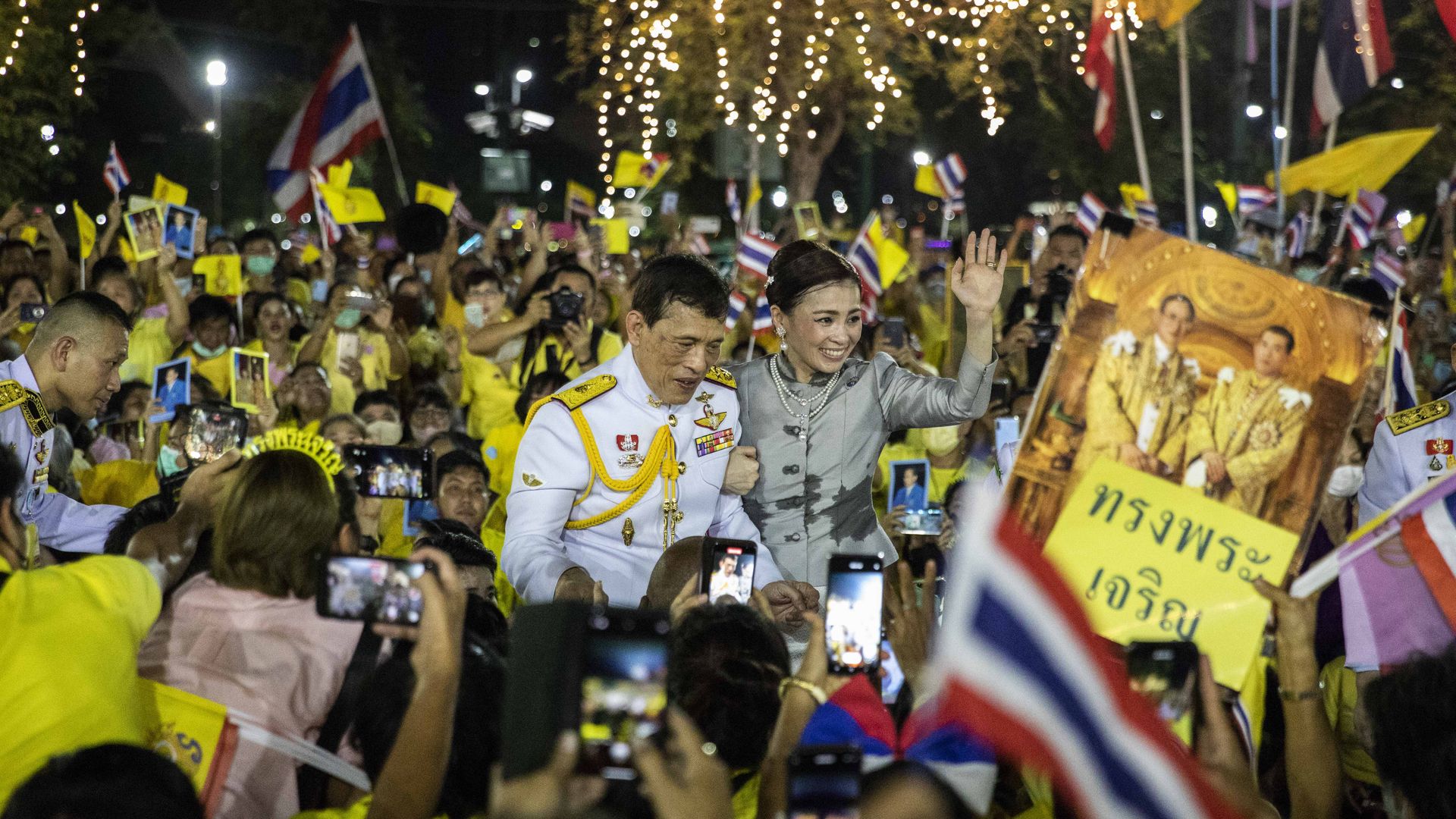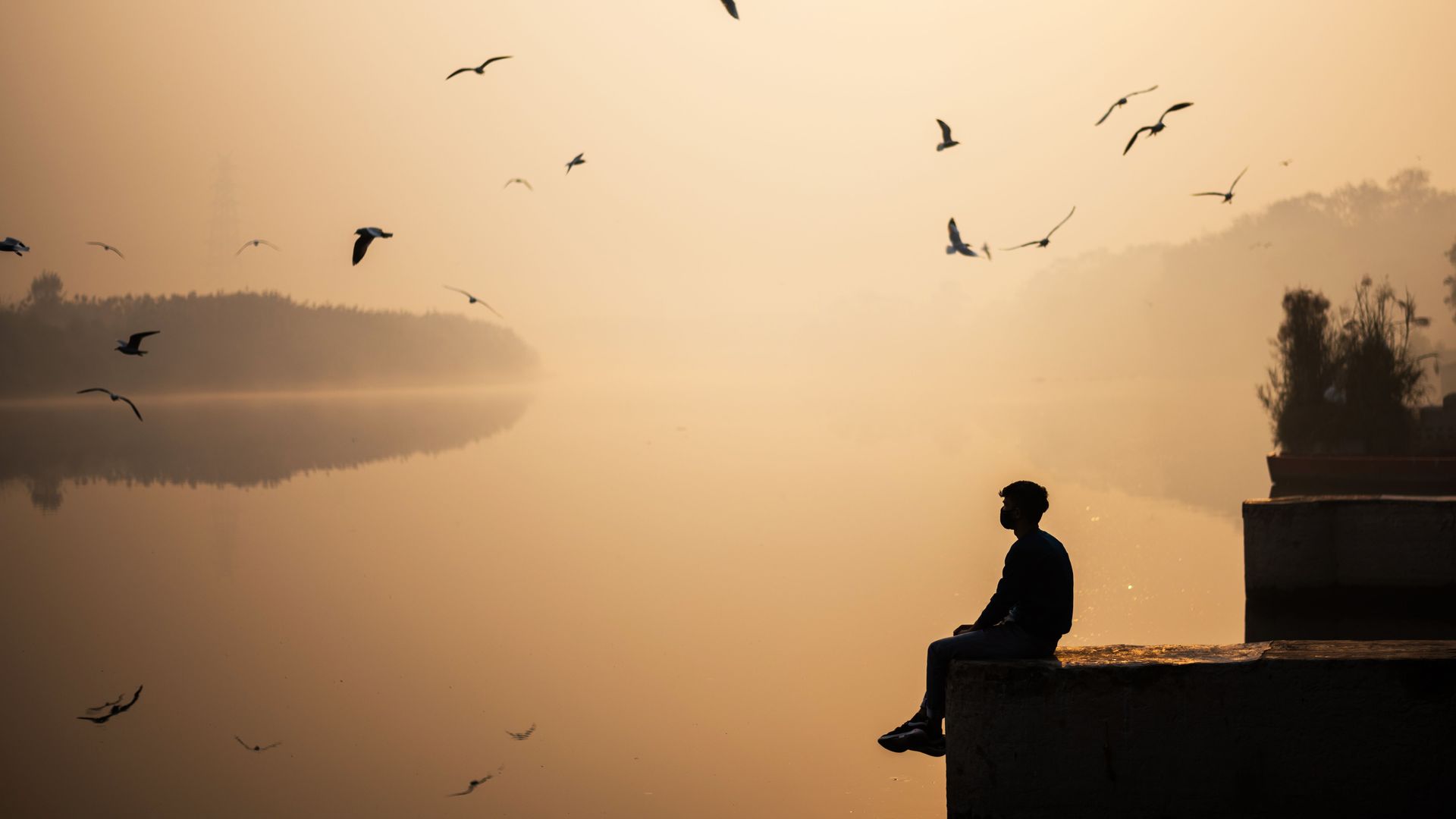| | | | | | | Presented By OurCrowd | | | | Axios World | | By Dave Lawler ·Nov 02, 2020 | | Welcome back to Axios World. - We're diving deep on elections tonight (1,622 words, 6 minutes), but you won't find "Trump" or "Biden" here.
- Instead, we're covering democratic developments in 16 countries around the world. I hope it's a healthy break from U.S. election overload.
Subscribe here. | | | | | | 1 big thing: Elections in dispute |  | | | The rubble of a barricade erected to enforce an election boycott in Abidjan, Ivory Coast. Photo: Issouff Sanogo/AFP via Getty | | | | It's a tumultuous time for global democracy. The big picture: A month packed with elections and constitutional showdowns has left several countries at critical junctures. In four cases, election results are being actively disputed. In Ivory Coast, an opposition boycott helped put President Alassane Ouattara on course for victory, but "extremely low" turnout on Saturday will further damage his legitimacy heading into a constitutionally dubious third term. - Ouattara had planned to step aside but reversed course after his hand-picked successor died in July.
- Most would-be challengers were barred, and two of the three who made it on the ballot called on their supporters to boycott.
- Protesters responded to the call by placing barricades around some polling places and destroying voting materials.
- What to watch: At least five people were killed in election day clashes. Further violence is feared after the results are finalized.
In Georgia, the ruling Georgian Dream party won 48% of the vote on Saturday compared to 27% for the opposition United National Movement (UNM), which challenged those results and called for protests in Tbilisi. - Setting the scene: Georgian politics are dominated by two men who don't actually hold elective office.
- Bidzina Ivanishvili, Georgia's richest man, founded Georgian Dream in 2012 and manages the party from his hilltop mansion.
- Mikheil Saakashvili, the exiled former Georgian president who currently advises the government of Ukraine, was UNM's candidate for prime minister.
- Georgian voters overwhelmingly favor integration with the West, particularly since the 2008 war with Russia (waged by Saakashvili), though Georgian Dream has attempted to mend fences with Moscow.
In Tanzania, opposition leaders were arrested today after launching fraud allegations and calling for protests following Wednesday's presidential vote. - Tundu Lissu, the leading opposition candidate, was reportedly arrested seeking protection at several European embassies, to no avail. He was released after questioning.
- President John Magufuli brazenly ensured he faced no serious competition — banning most critical or international media, outlawing independent exit polls, barring election observers, and cracking down on social media and internet access.
- Official results show him with 84% of the vote. Having secured a second term, he'll likely try to bulldoze his way to a third, writes Karuti Kanyinga of the University of Nairobi.
- "Tanzania is slowly walking the path that others in the region have walked before; a path that leads to absolute authoritarianism," he writes.
In Guinea, the main opposition party filed a challenge to the country's constitutional court on Sunday, seeking to overturn the results of the Oct. 18 vote. - Opposition candidate Cellou Dalein Diallo claimed victory after polls closed, but official results showed the 82-year-old incumbent, Alpha Condé, comfortably winning a third term.
- At least 21 people were killed in post-election violence. It appears to have subsided for the time being.
|     | | | | | | 2. Part II: Transitions underway |  | | | "You might be wondering how I ended up here." Sadyr Japarov. Photo: Abylai Saralayev/TASS via Getty | | | | 1. Kyrgyzstan's high court has agreed to consider a protest to the scrapping of an electoral rerun by Sadyr Japarov, the newly installed acting president. - Japarov was in jail for kidnapping when the ballots were cast on Oct 4. By the time the dust settled, and the results were nullified, he was prime minister and then acting president.
- So bizarre and sudden was the nationalist's rise that it seems to have unsettled China, Russia and the U.S. alike. Rumors are swirling that Japarov's path to power was cleared by organized crime groups, Radio Free Europe reports.
- Where things stand: Japarov plans to step down temporarily before the end of the year so as to be eligible to run in January's presidential election. The parliamentary rerun has been postponed indefinitely.
2. Former Bolivian President Evo Morales is expected to return from exile just days after his former economy minister, Luis Arce, is sworn in as president on Nov. 8. - Morales fled Bolivia following a disputed election last October. His interim successor, right-wing senator Jeanine Añez, said Morales should "face justice" for allegedly fomenting unrest.
- But Arce's landslide victory on Oct. 18 has the socialists storming back to power.
- Now, the socialist-controlled congress has passed a motion calling for Añez to "face justice" for her role in the post-election violence.
3. Things appear less contentious in New Zealand. Prime Minister Jacinda Ardern announced an "incredibly diverse" Cabinet today following her Labour Party's emphatic victory last month. - New Foreign Minister Nanaia Mahuta will be the first woman to hold that post, and she is one of several Cabinet ministers from the Māori community.
|     | | | | | | 3. Part III: Tallying up the results |  | | | Wave-l of change in Seychelles. Photo: Rassin Vannier/AFP via Getty | | | | 1. Algerians approved constitutional changes in a referendum on Sunday — but turnout was a record-low 24%. - The Hirak protest movement called for a boycott, saying the proposals would keep the establishment in power and not address the grievances that led to massive protests last year.
- The movement lost momentum during a COVID-19 shutdown, and the government has tried both intimidation and conciliation to re-establish control.
- The flipside: The vote in Algeria was a far cry from Chile's constitutional referendum on Oct. 25, which empowered an elected assembly to draft a new constitution in a historic victory for the protesters.
2. Moldova's presidential election is heading for a run-off on Nov. 15 after pro-European challenger Maia Sandu secured a narrow lead in Sunday's first round. - Moldovan politics are plagued by corruption and instability, and often play out as a contest of East vs. West.
- Incumbent Igor Dodon has prioritized close relations with Moscow.
3. A "political earthquake" in the Seychelles has seen the ruling party pushed from power for the first time since 1977, and an Anglican priest sworn in as president. - Wavel Ramkalawan, the priest, had run and lost in five previous elections. The transfer of power was smooth despite the turbulent political history of the Indian Ocean islands.
- Home to just 95,000 people, they have become a flashpoint of competition between India and China, the Telegraph notes.
|     | | | | | | A message from OurCrowd | | OurCrowd creates pre-IPO investment opportunities for you | | |  | | | | Today, OurCrowd members can invest in Cyabra. As disinformation becomes increasingly threatening to global brands, media and governments, Cyabra reports that it's uniquely positioned to serve this potential $6.1 billion market. Interested in investing? Join OurCrowd. | | | | | | 4. Part IV: Global democracy monitor |  | | | Thailand's king and queen in a rare homecoming. Photo: Lauren DeCicca/Getty Images | | | | 1. Ukrainian President Volodymyr Zelensky has asked parliament to dissolve the constitutional court after it blocked key anti-corruption reforms. - Why it matters: International aid to Ukraine is dependent on progress in fighting corruption. So is Zelensky's embattled presidency.
- Ukraine's notoriously corrupt judiciary has clearly become an obstacle to his reform agenda, but Zelensky's rivals have accused him of a power grab that he may lack the votes to execute.
- "Zelensky's presidency has entered its crucial moment," former Economy Minister Tymofiy Mylovanov told the FT.
2. Malaysia's king has rejected Prime Minister Muhyiddin Yassin's request for an emergency decree to handle COVID-19 and — more to the point — skirt a potential vote of no-confidence in the coming days. - Yassin's position has been precarious since he took power in March. Opposition leader Anwar Ibrahim claimed last month that he, not Yassin, commanded a parliamentary majority.
- Alliances are fleeting in Malaysian politics, though, and the current state of play is hard to determine.
- What's next: The government is due to table its budget on Friday. If it's voted down, early elections could follow.
3. The ongoing protests in Thailand have led to talk of yet another military coup, NYT reports. - Driving the news: King Maha Vajiralongkorn, who spends most of his time in Germany, has returned to Bangkok in an apparent effort to shore up support.
- Appearing before crowds of adoring royalists, he was asked about a group with whom he is far less popular: the youthful protesters demanding monarchy reform.
- "We love them all the same," he told the U.K.'s Channel 4 news, adding that Thailand is "the land of compromise."
4. Sri Lanka's recent constitutional reforms have created a "near-absolute presidency" and further concentrated power in the hands of the Rajapaksa family, the Economist writes. - The changes wipe out checks and balances implemented following the presidency of one Rajapaksa brother (Mahinda), empower the brother who currently serves as president (Gotabaya), and clear the way for a third brother (Basil) to eventually take power.
|     | | | | | | 5. State of the outbreak: Europe keeps climbing |  Data: Our World in Data; Chart: Naema Ahmed/Axios Europe is swiftly shutting down as the unprecedented spike in new cases hits perilous new heights. Driving the news: Fresh off imposing a new lockdown — something he'd vowed not to do — U.K. Prime Minister Boris Johnson said today that the current spike could ultimately be "twice as bad" as Britain's brutal spring. - "We could see deaths in this country running at several thousand a day," he warned.
Starting Thursday, bars, restaurants and non-essential businesses across England will be closed. International travel will be banned, as will the mixing of multiple households indoors. - As in most of Europe, schools will stay open.
- The new measures are slated to last until Dec. 2, but Johnson conceded today that they could be extended.
- The latest: Austria also announced a lockdown on Saturday, while restaurants, movie theaters and gyms will be closed in most of Greece starting tomorrow. Belgium is also locking down.
There is less horrifying news elsewhere. - Israel was the first country to impose a second nationwide lockdown, but it appears to be working despite less harsh restrictions and some flouting of the rules, WSJ notes.
- Case counts fell swiftly and dramatically, starting just 10 days after the lockdown was imposed.
In India, cases and deaths have been consistently in decline since a mid-September peak. |     | | | | | | 6. One to watch: Merkel's endgame |  Data: Gleditsc and Chiozza, 2016, " Archigos — A Data Set on Leaders 1875–2015", Axios research; Chart: Axios Visuals Angela Merkel's Christian Democratic Union announced Saturday that it will select its next leader in mid-January. Why it matters: Merkel has said she won't lead her party into Germany's next election, which is due next fall. The winner of the leadership race probably will, making them the front-runner to replace Merkel as chancellor. - The leading candidates are Friedrich Merz, a conservative critic of Merkel's, and the more centrist Armin Laschet. The leader of the CDU's Bavarian sister party, Markus Söder, could also potentially lead the joint ticket in 2021.
- Flashback: Merkel's hand-picked successor, Annegret Kramp-Karrenbauer, secured the party leadership in Dec. 2018 but stepped down after a short and heavily criticized tenure.
What to watch: Merkel's shoes will be difficult to fill. Her approval ratings are near 60% even after 15 years in power. |     | | | | | | 7. Stories we're watching |  | | | A smoggy sunrise on the Yamuna River, in New Delhi. Photo: Jewel Sada/AFP via Getty | | | - Vienna attack latest (BBC)
- America's role in the world undecided heading into election
- Paris accord withdrawal is nearly final
- Asia's most powerful storm of 2020 slams Philippines
- U.S. conducts hostage rescue mission in Nigeria
- The push to bring a Super League to European soccer
- Long-lost chameleon species returns in Madagascar
Quoted: "We are going through a dark hour in our republic." — Austrian Chancellor Sebastian Kurz on what he called a "disgusting terror attack" tonight in Vienna |     | | | | | | A message from OurCrowd | | VC in on successful IPOs of 2019 and 2020 launches pandemic fund | | |  | | | | OurCrowd's Pandemic Innovation Fund. The idea: From communication companies adapting to the new normal to med-tech to food security solutions, the fund's investments have potential for positive impact and superior returns. If you're interested in investing, you need to join OurCrowd. | | | | | | Axios thanks our partners for supporting our newsletters.
Sponsorship has no influence on editorial content. Axios, 3100 Clarendon Blvd, Suite 1300, Arlington VA 22201 | | | You received this email because you signed up for newsletters from Axios.
Change your preferences or unsubscribe here. | | | Was this email forwarded to you?
Sign up now to get Axios in your inbox. | | | | Follow Axios on social media:    | | | | | |










No comments:
Post a Comment